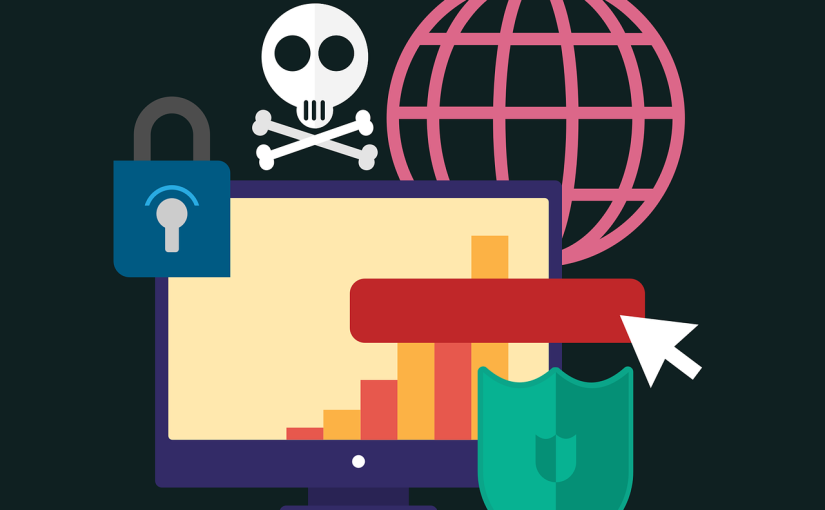How Financial Automation Can Protect You Against Supplier Impersonation
In many organizations, security risks can arise from almost every digital transaction and communication in today's ultra-complex world of cybersecurity vulnerabilities.
Hackers and fraudulent entities typically monitor an establishment's protocols and business models and look for vulnerable avenues to target. It's especially common for bad actors to pursue financial avenues to infiltrate a company. Financial fraud can take many forms and affect almost every department in a company. One of the most common vulnerabilities that has become much more prevalent in businesses of all sizes is payment fraud resulting from vendor impersonation.
As the threat of vendor impersonation continues to grow and the underlying technology becomes more sophisticated, it is important to know how to identify these vulnerabilities in your organization and take steps to mitigate them. In this article, you'll learn about these security risks and how vendor impersonation can harm a business. You'll also learn about technologies that can reduce your security risks, including financial automation tools.
What is Vendor Impersonation?Supplier impersonation, in the simplest terms, occurs when a fraudulent actor attempts to impersonate a business with the intent of defrauding that business's customers. When a bad actor impersonates a supplier, the goal is to send fraudulent emails to customers of that supplier with the aim of updating the payment or banking information that the customer has registered to pay the invoices from this supplier. Therefore, when the legitimate supplier sends genuine invoices to this customer in the future, the customer's payments are automatically sent to the fraudulent account.
In recent years, technology has become increasingly sophisticated to allow fraudulent actors to send emails from fake email addresses that appear nearly identical to legitimate email addresses from the same company . In some cases, addresses cannot be distinguished from each other. Called Business Email Compromise (BEC), it has grown to be very advanced.
A very convincing email apparently sent by a supplier posing as a supplier asking to update the direct payment information they hold on a new (fraudulent) account may allow a malicious actor to siphon off payments on all future legitimate invoices that the supplier sends to its customer until the fraud is detected.
“Although fraudulent email requests seem legitimate and harmless, a malicious email can seriously damage the organization if an employee responds to a fraudulent request,” said Nasser Chanda, CEO of Paymerang, the a leading financial automation platform that helps businesses prevent and detect payment fraud.
Supplier impersonation can happen to businesses of any size, scope, or specialty. However, small businesses that lack strong security features are likely to fall victim to such threats.
How Does Supplier Impersonation Affect Business Owners?Supplier impersonation can have a negative impact on business owners, regardless of their industry. But as mentioned, small businesses that lack adequate security controls and anti-fraud measures are more likely to fall prey.
Having only manual financial processes for processing supplier invoices and requests can also create a security hole. Human error can never be fully mitigated on its own. That's why many companies have equipped their finance teams with automated technology. This reduces the risk of error and detects warning signs earlier.
"When the size of a business is taken into account, small businesses appear to be more prone to fraud because they lack the employees or resources needed to protect themselves from an attack," says Chanda.
> How can your company's employees be victims of fraud?Educating an organization's finance team on the ever-changing threats that exist in the cyber landscape has become a critical part of a company's finance strategy. It is necessary to constantly educate yourself on the most common fraud threats and vendor impersonation scenarios and how to spot red flags in emails and other communications. In addition, it is imperative that your employees verify the identity of those with whom they correspond by e-mail.
The tools to protect your business from security threats and vendor impersonationBasic email security tools are often insufficient to prevent financial fraud. Phishing and other tools are sometimes evaded by the most sophisticated...

In many organizations, security risks can arise from almost every digital transaction and communication in today's ultra-complex world of cybersecurity vulnerabilities.
Hackers and fraudulent entities typically monitor an establishment's protocols and business models and look for vulnerable avenues to target. It's especially common for bad actors to pursue financial avenues to infiltrate a company. Financial fraud can take many forms and affect almost every department in a company. One of the most common vulnerabilities that has become much more prevalent in businesses of all sizes is payment fraud resulting from vendor impersonation.
As the threat of vendor impersonation continues to grow and the underlying technology becomes more sophisticated, it is important to know how to identify these vulnerabilities in your organization and take steps to mitigate them. In this article, you'll learn about these security risks and how vendor impersonation can harm a business. You'll also learn about technologies that can reduce your security risks, including financial automation tools.
What is Vendor Impersonation?Supplier impersonation, in the simplest terms, occurs when a fraudulent actor attempts to impersonate a business with the intent of defrauding that business's customers. When a bad actor impersonates a supplier, the goal is to send fraudulent emails to customers of that supplier with the aim of updating the payment or banking information that the customer has registered to pay the invoices from this supplier. Therefore, when the legitimate supplier sends genuine invoices to this customer in the future, the customer's payments are automatically sent to the fraudulent account.
In recent years, technology has become increasingly sophisticated to allow fraudulent actors to send emails from fake email addresses that appear nearly identical to legitimate email addresses from the same company . In some cases, addresses cannot be distinguished from each other. Called Business Email Compromise (BEC), it has grown to be very advanced.
A very convincing email apparently sent by a supplier posing as a supplier asking to update the direct payment information they hold on a new (fraudulent) account may allow a malicious actor to siphon off payments on all future legitimate invoices that the supplier sends to its customer until the fraud is detected.
“Although fraudulent email requests seem legitimate and harmless, a malicious email can seriously damage the organization if an employee responds to a fraudulent request,” said Nasser Chanda, CEO of Paymerang, the a leading financial automation platform that helps businesses prevent and detect payment fraud.
Supplier impersonation can happen to businesses of any size, scope, or specialty. However, small businesses that lack strong security features are likely to fall victim to such threats.
How Does Supplier Impersonation Affect Business Owners?Supplier impersonation can have a negative impact on business owners, regardless of their industry. But as mentioned, small businesses that lack adequate security controls and anti-fraud measures are more likely to fall prey.
Having only manual financial processes for processing supplier invoices and requests can also create a security hole. Human error can never be fully mitigated on its own. That's why many companies have equipped their finance teams with automated technology. This reduces the risk of error and detects warning signs earlier.
"When the size of a business is taken into account, small businesses appear to be more prone to fraud because they lack the employees or resources needed to protect themselves from an attack," says Chanda.
> How can your company's employees be victims of fraud?Educating an organization's finance team on the ever-changing threats that exist in the cyber landscape has become a critical part of a company's finance strategy. It is necessary to constantly educate yourself on the most common fraud threats and vendor impersonation scenarios and how to spot red flags in emails and other communications. In addition, it is imperative that your employees verify the identity of those with whom they correspond by e-mail.
The tools to protect your business from security threats and vendor impersonationBasic email security tools are often insufficient to prevent financial fraud. Phishing and other tools are sometimes evaded by the most sophisticated...
What's Your Reaction?















![Three of ID's top PR executives quit ad firm Powerhouse [EXCLUSIVE]](https://variety.com/wp-content/uploads/2023/02/ID-PR-Logo.jpg?#)







